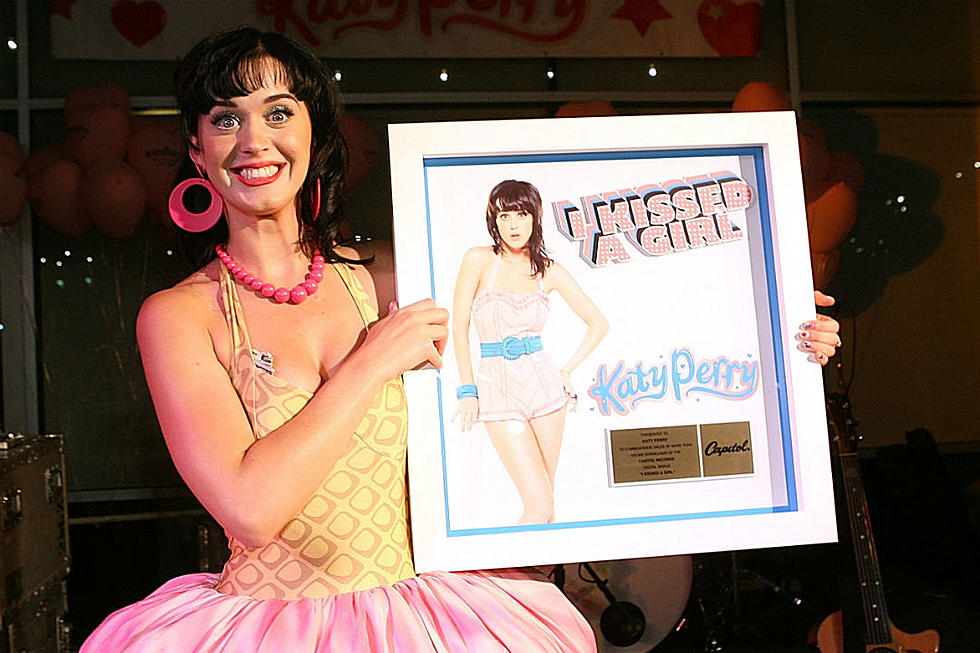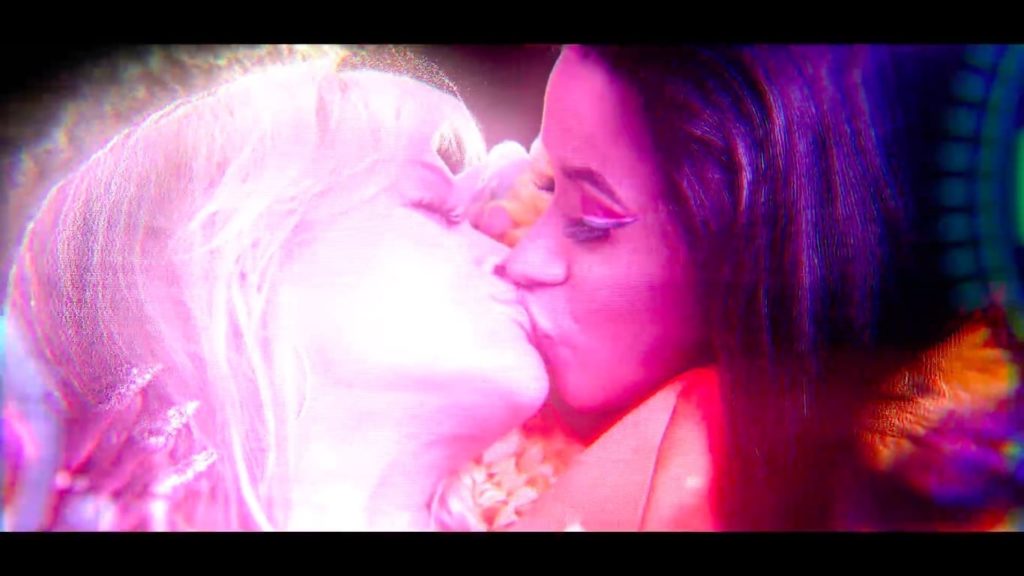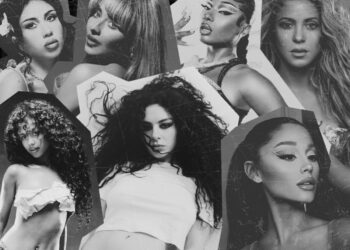As a member of the LGBTQ+ community, there are certain things you quickly grow very tired of hearing. As a lesbian, these often come from cisgender straight men who make disgusting and overtly sexual remarks. I can’t count the number of times a man has told me that he could “turn me straight” or that I “haven’t met the right man yet”. More disgustingly, however, is the far too common response when discovering I’m a lesbian – “can I watch?”
Not only is this just a vile thing to say, but it’s frighteningly common, and sadly something that many lesbians and women loving women (WLW) can relate to. The way lesbians have been sexualised is so frequently perpetuated by the media that it has seamlessly trickled into normal life.
The sexualisation of lesbians takes two very distinct paths, both equally as harmful. The first comes from the idea that lesbians are a “challenge” or something to conquer. This has become normalised through the media and songs such as ‘I Kissed a Girl’ by Katy Perry. We’ve all heard the song, it was incredibly popular at the time and I’m sure we all probably know more lyrics than we realise, but in listening to it again recently, I realised the lyrics were more damaging than I remember. Of course, there’s nothing wrong with exploring and discovering your sexuality but lyrics like “I kissed a girl just to try it/hope my boyfriend don’t mind it” are extremely toxic as it suggests that lesbian relationships are just an “experimental game”. The suggestion that cheating on your boyfriend is acceptable as long as it’s with a girl furthers this, hinting that lesbian relationships aren’t as valid or real as straight ones.

Katy Perry’s song was released in 2008, so I suppose it’s easy to say that things have moved on since then and the world is in a different place to what it was. However, a more recent song proves that we still have a massive way to go. Ten years after ‘I Kissed a Girl’, Rita Ora (alongside Charlie XCX, Bebe Rehxa, and Cardi B) released ‘Girls’ in 2018, a song that was originally intended to be a bisexual anthem. It was met with massive backlash after listeners believed it too was belittling to the validity of WLW relationships, suggesting that they’re just a phase.
Cardi B’s rap on this song simply hammers this message home more with lines like, “I could be your lipstick just for one night”. Although Rita Ora came out as bisexual after this song, I don’t think that removes the issues with the content of the song and actually shows how members of the LGBTQ+ community can also be passive towards lesbian issues. Lesbian singer Hayley Kiyoko tweeted that the song, “fuel[s] the male gaze while marginalising the idea of women loving women” and I have to agree. The song reiterates destructive bisexual stereotypes and reduces WLW relationships to existing only for male pleasure.

This also links to the second strand of the way lesbians are perceived – the fetishisation of WLW relationships. This is something so deeply ingrained that it’s spoken about from secondary school ages. I remember sitting in a science lesson listening to some girls recount a party over the weekend. They spoke about how they kissed each other because they knew that the boys they liked would love it. No one batted an eyelid.
It doesn’t take long to think of the root of this mentality or examples of it in the media. The one that comes to mind for me is Joey (and honestly most of the male characters) in Friends. There are countless occasions where the male characters are excited and giddy at the thought of two women kissing, and “lesbian” is frequently used as a punchline. Although Friends aired in the 90’s and early 2000’s, it’s still widely watched today and the fact that these ‘jokes’ that once went straight over my head are still aired in this day and age concerns me. These things have been so painfully normalised that joking about ‘watching’ lesbians isn’t even something to question.

What’s even more concerning is that ‘watching’ lesbians isn’t just used for the sake of male-enthused humour, it’s something that actively happens and in excessive amounts.
In 2016, Pornhub announced that “lesbian” was their most searched for term across the entire site, and is their most popular category of all time. Unfortunately, this doesn’t surprise me at all. In this patriarchal society, men, in particular, are raised to believe that women exist simply for the pleasure of men when this of course isn’t true. Part of the rise in this number may also be due to the rise in women watching porn, however, the way men and women watch lesbian porn also takes different forms. According to multiple articles and reports, for women it’s often about the focus on female rather than male pleasure. For men, however, it tends to be more about the fetishisation of lesbians and finding WLW inherently sexual. The continuous sexualised male gaze of WLW relationships makes going out into the world as a couple endlessly harder than being straight in public.

What angers me is the unspoken things WLW do to keep ourselves safe in public places, specifically around men. There’s a big difference between homophobic stares and sexualised comments. A horrifying number of women will have experienced street harassment during their lifetime in the form of catcalling. But what can often get overlooked is that lesbian women receive a whole extra form of harassment that, frankly, is terrifying. I’ve been in two WLW relationships and continue to receive stares when holding my girlfriend’s hand, even in areas close to my home or places I feel safe. There’s the innate question of whether I should let go of her hand. When to look like we’re “just friends”. When men have been staring at us a bit too long or getting a bit too close. Being a lesbian in public means being on constant alert. I’m so sick of feeling like that, and I know almost every LGBTQ+ person feels the same.
Despite the huge progress made in LGBTQ+ rights and representation, there are still groups being left behind. A quick Instagram search for “gay” leads you to various pride accounts and LGBTQ+ resources. The same can be said for “pansexual”, “LGBTQ”, and “asexual”. A search for the word “lesbian” however, leads you to accounts posting lesbian pornography.
I think that alone shows just how much work we have left to do.















